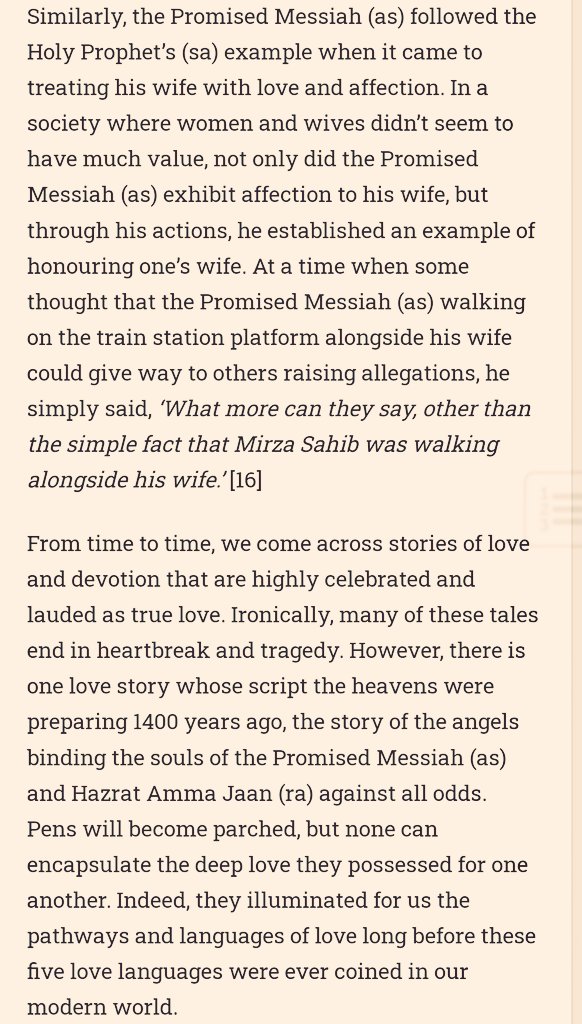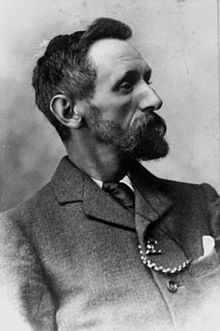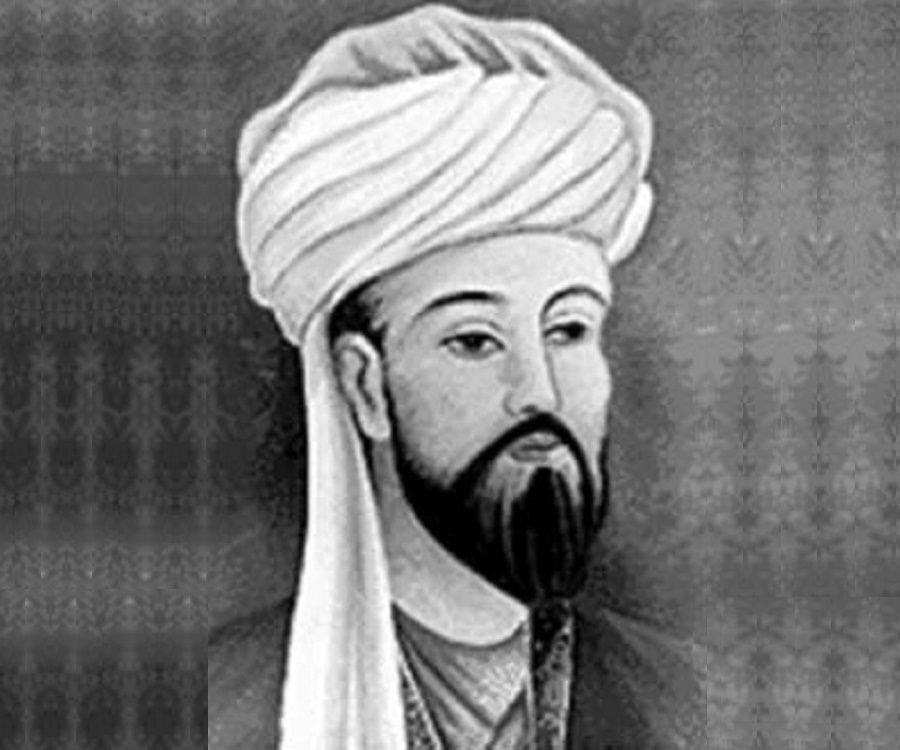The #Messiah Who Spoke the Five Languages of Love.
🧵:
According to renowned marriage counselor Dr Gary Chapman, author of the widely acclaimed series The 5 Love Languages,we have overlooked a fundamental truth, people speak different love languages. To love is to communicate,
🧵:
According to renowned marriage counselor Dr Gary Chapman, author of the widely acclaimed series The 5 Love Languages,we have overlooked a fundamental truth, people speak different love languages. To love is to communicate,
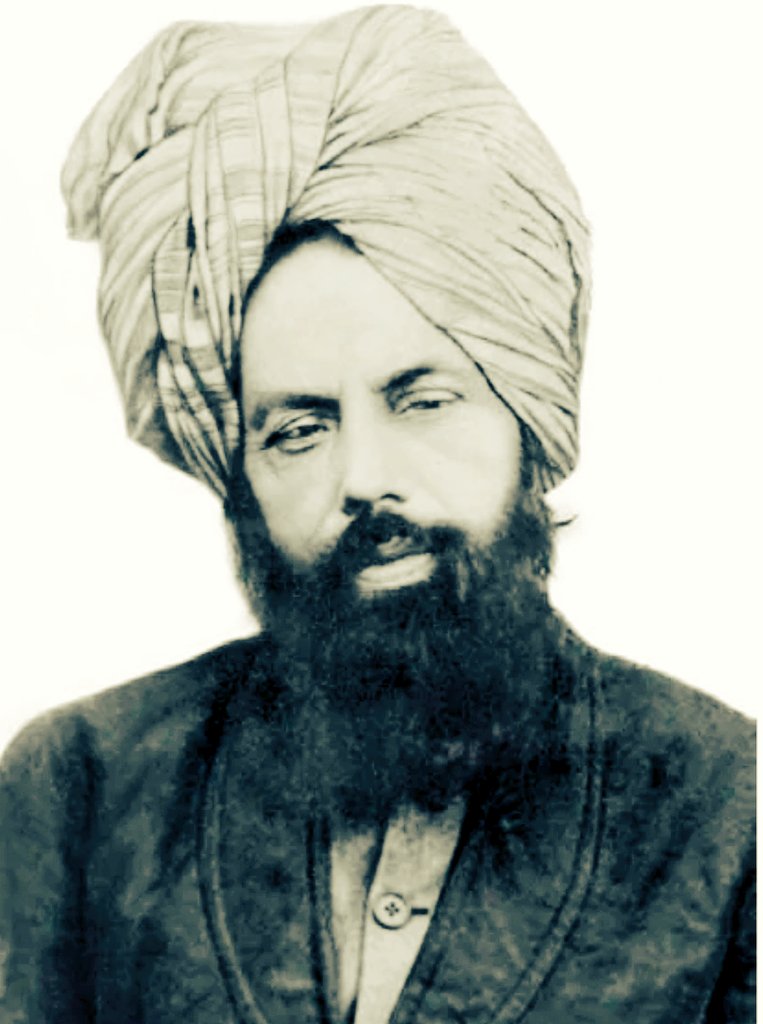
but imagine that the person you are speaking to cannot understand a single word you are conveying. Dr Chapman believes that it is essential that we learn our partner’s primary love language to be effective communicators of love. 

Flipping through the pages of this book, I could not help but think of the Promised Messiah (as) and his exemplary bond with his wife Sayyedah Nusrat Jahan Begum (ra), who is affectionately known as Hazrat Amma Jaan (ra). Together, they were said to be
‘one heart beating in two chests.’ But what was their approach to establishing a flourishing relationship? What did they do differently to maintain love in their marriage? Did the Promised Messiah (as) ever implement these love languages in his own life?
If this is your partner’s primary love language, frequent compliments or words of appreciation can strengthen the emotional climate of your marriage. Our words have the ability to encourage and inspire. As Dr Chapman explains, we all have areas in which we are insecure 
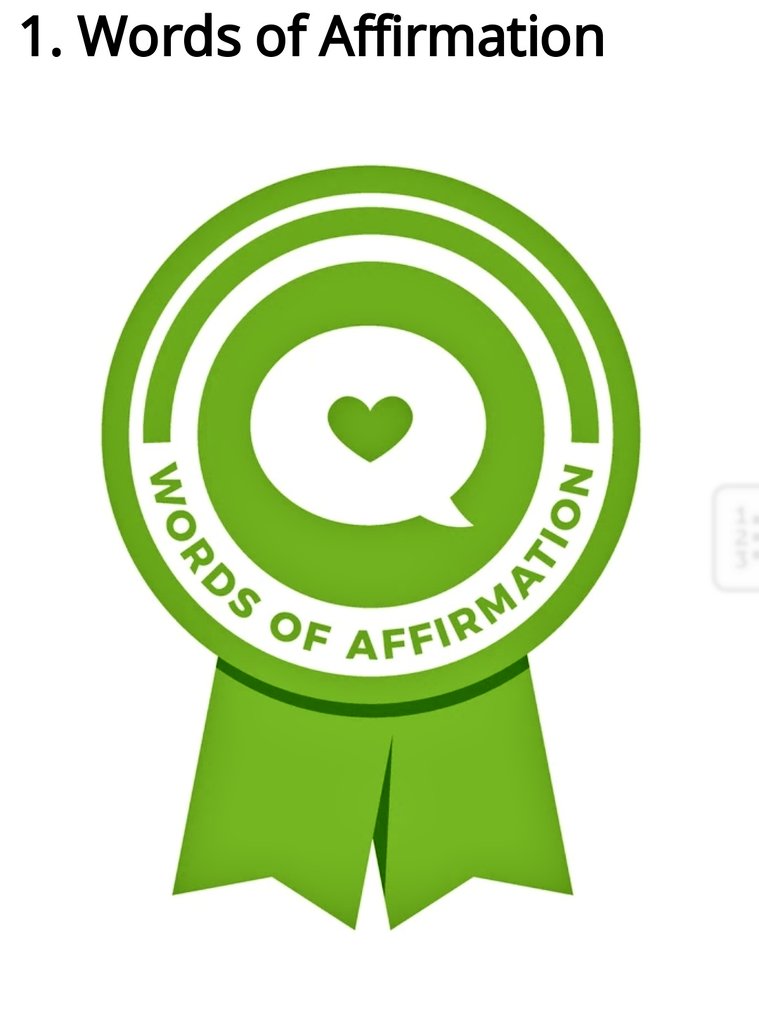
and lack courage. However, verbal reinforcement reveals our latent potential and pulls us out of the dark abyss of self-doubt. The Promised Messiah (as) recognized the positive influence words can have, as illustrated in the following incident. When Hazrat Amma Jaan (ra) learned
that sweet rice was one of the favourite dishes of the Promised Messiah (as),she resolved to make some. However,she accidentally added four times the sugar that was required for the recipe.With a pan full of gooey & seemingly inedible rice,and with no time to prep another batch,
all seemed hopeless. When the Promised Messiah (as) arrived home, Hazrat Amma Jaan (ra) was on the verge of tears.However, instead of getting angry at his wife, the Promised Messiah (as) consoled her, saying,‘Why are you upset about the rice? It’s quite nice; I like it this way.’
Whether it’s washing the dishes, making the bed, or cooking a meal, if executed with a positive spirit, acts of service are indeed expressions of love. Especially when a certain task is burdensome and/or inconvenient, its execution goes a long way in fueling your partner’s 
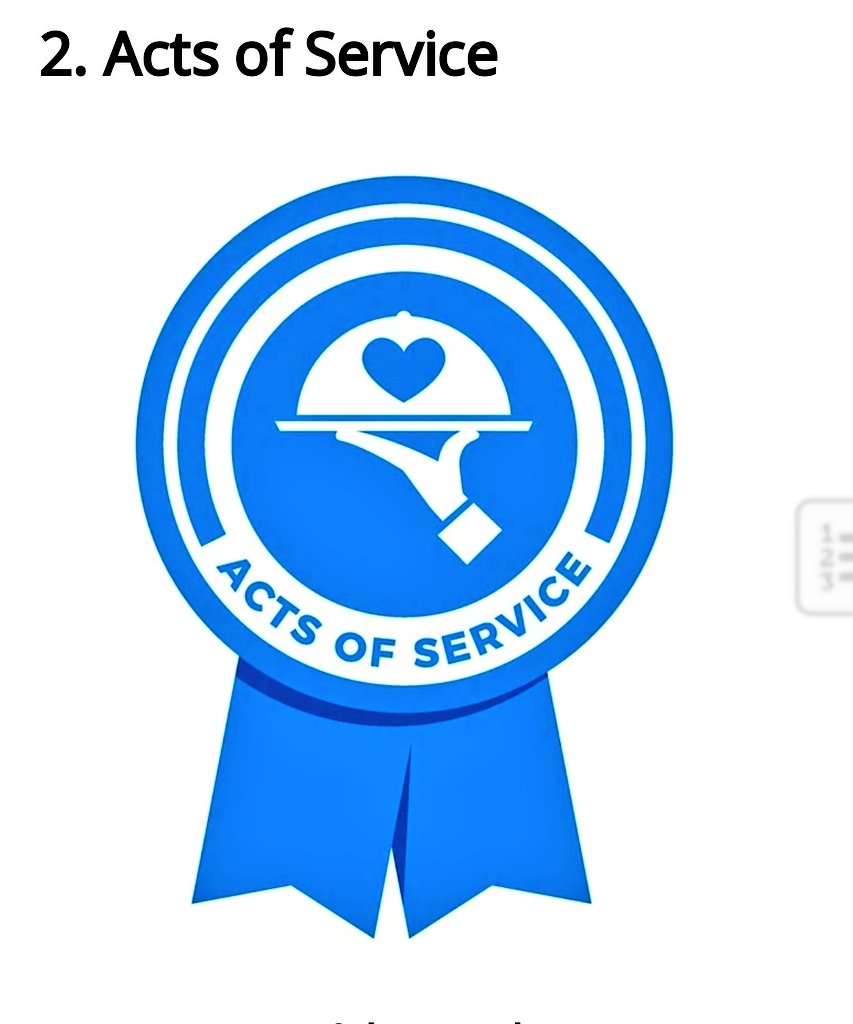
emotional tank. In this regard, the Promised Messiah (as) stated, ‘Men should help their wives in doing the household chores, This is a good deed. The Holy Prophet (sa) would help his wives in doing the household chores.’
The Promised Messiah’s (as) own character was such that he did not shy away from carrying out household chores such as making the bed or sweeping the floor. 

Do you ever feel like you are talking to your partner but they are off in some other galaxy?As Dr Chapman highlights,for many of us, emotional, physical,and mental presence is a key indicator of whether or not our partner cares, & a central aspect of quality time is togetherness. 
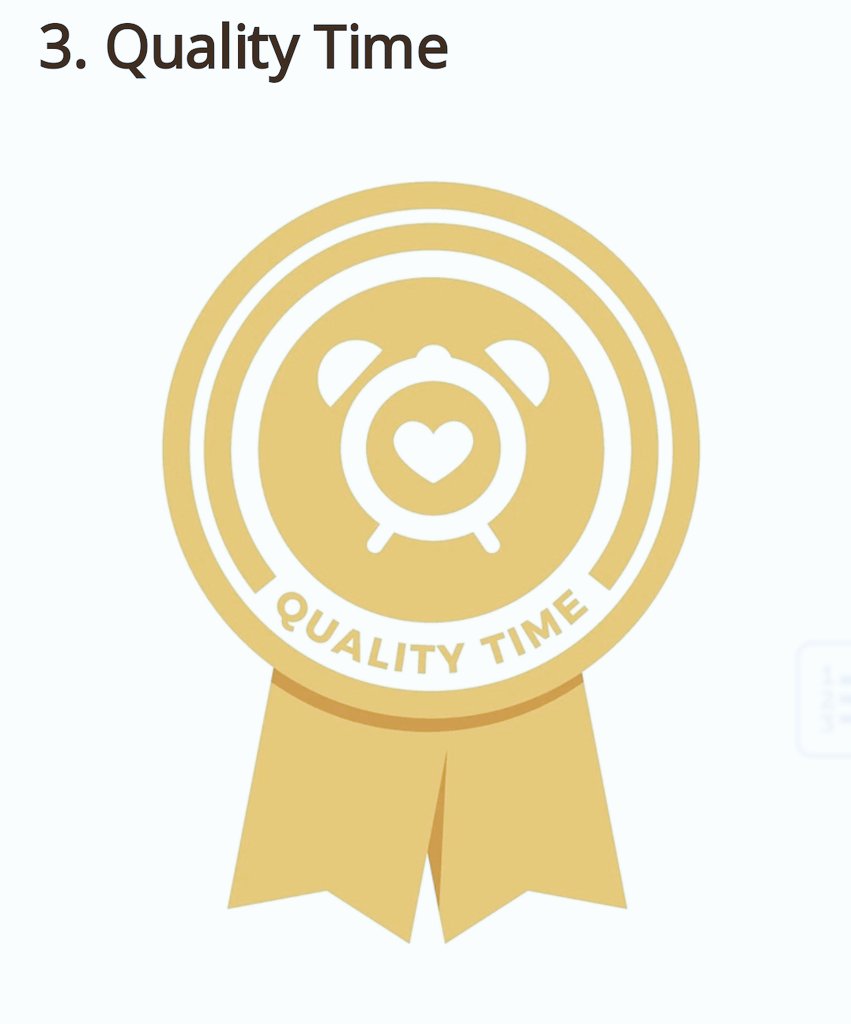
This doesn’t mean being joined at the hip with your loved one; rather, it simply means giving that person your undivided attention. 
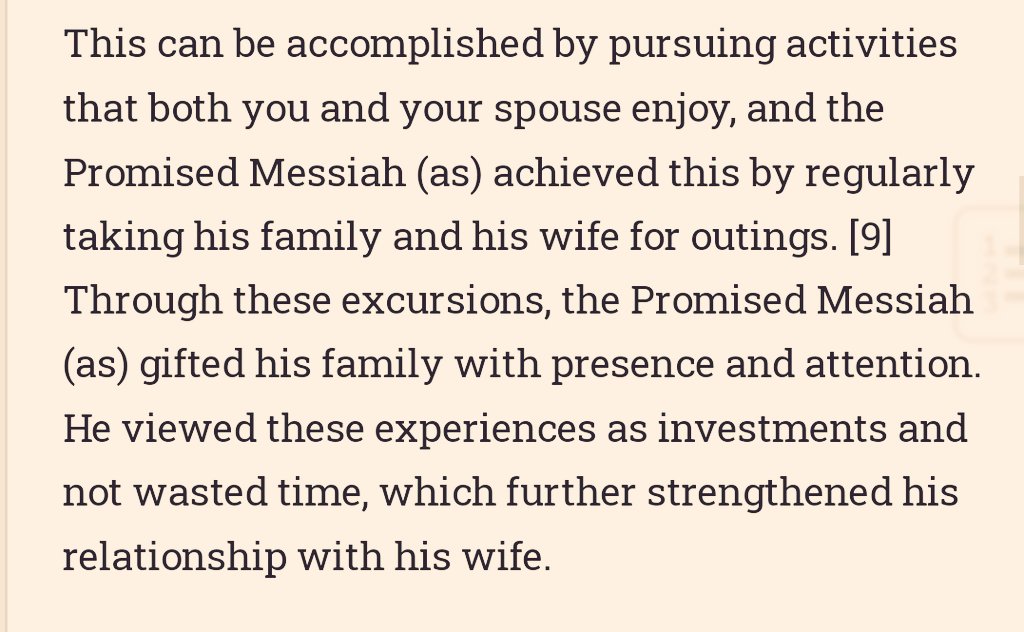
Studying various cultures of the world, Dr Chapman concluded that gift-giving is a central theme throughout, as gifts are visual symbols of love. We look at a particular gift and think to ourselves, ‘he was thinking about me’ or ‘she remembered me.’ 

The cost or value of the gift is not as important as the affection a gift imparts. No wonder the Holy Prophet (sa) advised, ‘give gifts and you will love one another’. 

Physical touch is a powerful vehicle for communicating love, as it makes people feel wanted and secure. Without touch, many feel alone and neglected, and studies show that it serves as a buffer against stress and regulates heart rate. 

Dr Chapman explains that we hug one another in times of crisis because in such uncontrollable, volatile circumstances we can cope better if we feel loved. 

About the Author: Qasim Choudhary is a graduate from the Ahmadiyya Institute of Languages and Theology in Canada, and serves as an Imam of the Ahmadiyya Muslim Community in the United States of America.
• • •
Missing some Tweet in this thread? You can try to
force a refresh

 Read on Twitter
Read on Twitter

